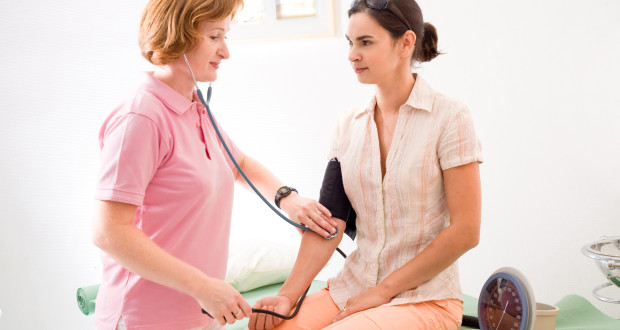Published: May 29, 2014
Health Checks – Screenings and Vaccines You Need at 50 plus
Prevention is better than cure. Regular health checks and screenings should continue throughout your entire life. Many medical conditions can be prevented or treated more effectively if caught early. The range of checkups and screening tests will vary from woman to woman depending on her individual health risks, her personal and family medical history. Talk to your clinician about what tests you require to maintain your health:
Tests Recommended in Your 50’s plus:
Routine Checkups, Screenings and Vaccines Immunizations
- Breast Exam– Do a monthly self- breast exam. Check for lumps, changes to skin (dimpling) or changes to nipples. Contact your clinician if you notice any changes in your breasts. Your clinician should do a complete breast exam every year.
- Mammogram – Women over 40 should have a mammogram every 1-2 years, depending on their risk factors of breast cancer
- Physical Exam – Have a complete physical examination every year. Your clinician should take your height, weight and body mass index (BMI). Have your hemoglobin and hematocrit checked
- Blood Pressure Screening – Have your blood pressure measured every year – normal range is less than 120/80. If your top number (systolic number) is greater than 130 or the bottom number (diastolic number) is greater than 85, call your clinician’s office.
- Cholesterol Screening – Lipids and triglycerides Check your levels (LDL – low-density lipoprotein), HDL – high density lipoprotein, the good cholesterol; and total cholesterol every two years. If there are other indicators of cardiovascular disease, follow your clinician’s recommendations
- Blood Sugar -Have blood glucose testing (a screen for prediabetes or diabetes) every five years until age 65. Ask your clinician about when to have a blood sugar test particularly if you are at risk for diabetes
- Pelvic and Pap Smear -Have a complete GYN exam every year. Pap smears every 2-3 years. Women who have had a total hysterectomy (uterus and cervix removed) may choose not to have Pap smears.
- Colon Cancer Screening – Have an annual digital rectal exam with fecal occult blood testing for colorectal cancer; a colonoscopy every 10 years. Women with risk factors for colon cancer may need a colonoscopy more often.
- Osteoporosis Screening -Bone density test (DEXA scan). Your clinician should advise you when to have your first bone density test based on your individual risks for osteoporosis
- Skin Exam – Have a full body skin check every one to two years
- Eye Exam – Have your eyes tested every two years. Your healthcare provider should also check for glaucoma
- Hearing Exam – Hearing should be tested if you notice any hearing loss
- Dental Exam – Yearly dental exams to check for tooth decay and gum disease and to have your teeth cleaned
Immunization Review –
Make sure your immunizations are up to date.
- Influenza vaccine – annually
- Td (tetanus, diphtheria) and Tdap (tetanus, diphtheria and pertussis) vaccines – Once every 10 years for Td booster
- Herpes zoster (shingles) vaccine – Once
- MMR (measles, mumps and rubella) vaccine –If you have not been immunized or are of unsure of your immunization get a booster shot (once).
- Hepatitis A vaccine – if you are at risk – once, but given in two doses over 6 month to 18 month periods
- Hepatitis B vaccine – if you are at risk, this vaccine is given in 3 doses with the second dose given four weeks after the first and the third dose five months after the second
 Red Hot Mamas In Charge of Change.
Red Hot Mamas In Charge of Change.

